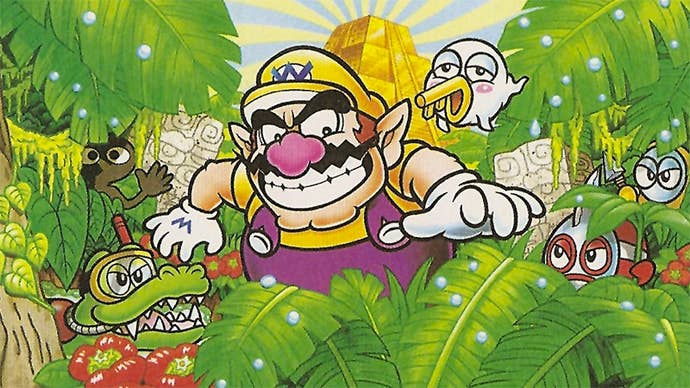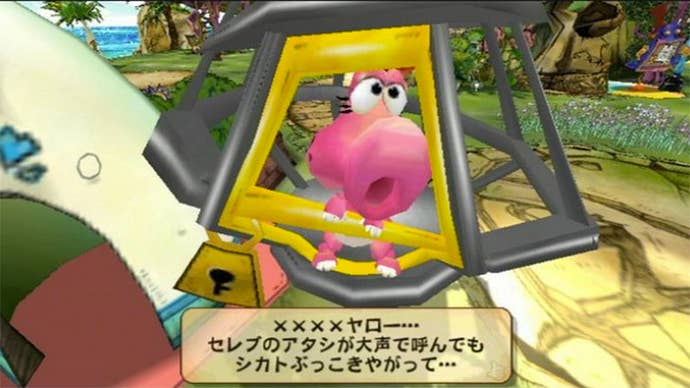Super Mario Gaiden: Five Memorable Spin-offs from the Mushroom Kingdom
Nintendo's mascot steps aside for these worthwhile adventures starring his marketable friends.
This article first appeared on USgamer, a partner publication of VG247. Some content, such as this article, has been migrated to VG247 for posterity after USgamer's closure - but it has not been edited or further vetted by the VG247 team.
It doesn't happen often, but sometimes, the Super Mario Bros. universe leaves its red-capped superstar behind for the sake of focusing on an entirely different character.
Most recently, Mario's mushroom pal took the reins in Captain Toad: Treasure Tracker, but the past few decades have seen a handful of other games serve as the Family Matters to Super Mario Bros.' Perfect Strangers. And if that analogy made absolutely no sense to you, fear not: The following Mario-free Mario games will ease the pain of hopelessly dated pop culture references.
Luigi's Mansion
Luigi's Mansion is a great little game, but it took some perspective for people to truly understand it. You see, up until the GameCube's launch, we were completely spoiled by the fact that Nintendo debuted every one of their consoles with a new (and usually mind-blowing) Super Mario game. Luigi's Mansion, though, was anything but. Instead of giving us the Super Mario 64 follow-up we'd all been anticipating, Nintendo delivered a slow-paced Resident Evil parody that helped cement Luigi's status as a notable coward. Unfortunately, the early '00s console arms race called for spectacle and bravado instead of cartoony charm, so this secret Ghostbusters game often found itself called out as Exhibit A in the case of Nintendo vs. Relevancy. Two consoles and one 3DS sequel later, and Luigi's Mansion is looked upon much more charitably—a deserving fate for this formerly misunderstood game.
Super Princess Peach
Years before we'd finally see playable Peach in Super Mario 3D World, Nintendo gave this member of Mushroom Kingdom royalty her very own starring role with Super Princess Peach. The game stood as a pretty bold move, even if it was a long time coming—outside of Super Mario Kart and Nintendo sports games, Peach's main role up to that point had been "kidnap fodder." It didn't exactly make much progress for feminism, though: Peach's main powers can be found in her uncontrollable emotional states, used to solve the various platforming puzzles throughout. While few other games found such practical uses for crying fits, the general tone of Super Princess Peach could have been a little more respectful to the protagonist, even if her treatment doesn't feel mean-spirited. Still, if you're able to overlook this baggage, Super Princess Peach remains a vibrant and inventive platformer, and one that's practically begging for a sequel.

Wario Land/WarioWare
Wario's first starring role came with "Super Mario Land 3" attached to its title, which felt like an effort by Nintendo to ease players into this bizarre parody of their flagship platforming series. Wario Land features the same side-scrolling game play as Super Mario Bros., only everything's a just a little off: Instead of being a cutesy, colorful Mushroom Kingdom romp, Wario Land exists as the Garbage Pail Kids version of Super Mario Bros. And the sequels would take this idea of bizarro Mario even further by changing the fundamental rules of platforming. In parts two and three, Wario can't be killed; he instead changes into different forms when attacked by enemies, making these games feel remarkably like modern indie puzzle platformers. Nintendo passed Wario Land to outside developers after the fourth game, and shifted their irreverence to the Wario Ware series, which threw dozens of micro-games with bizarre objectives at players in a rapid-fire succession. This series, too, eventually ran out of gas with 2013's Game & Wario, but should Nintendo figure out a new role for their evil Mario variant, it's bound to be just as revolutionary.
Donkey Kong Country
In order to win the 16-bit console war, Nintendo went back to the big ape that brought them their first major success in the world of video games. But this wasn't your grandpa's Donkey Kong: With the help of developer Rare, Nintendo reinvented the character for the '90s, giving him a CGI makeover and a brand new 'tude. While the Donkey Kong Country games would grow more ambitious over time, the technological trickery pulled off by the SNES was enough to make consumers think their $200 console had the same power as the workstations that made Jurassic Park's raptors so lifelike. Strangely enough, Donkey Kong would be completely phased out of Country with the following two sequels, which instead focused on the younger and decidedly more radical members of the Kong clan. This series could have easily turned into a relic of the '90s, but, in recent years, developer Retro (of Metroid Prime fame) resurrected Country, making it far more playable and less fugly than ever before. And this time around, Donkey Kong wouldn't be upstaged by some baby.

Captain Rainbow
In one of the weirdest Japan-only Wii releases, 2008's Captain Rainbow puts the spotlight on C-list Nintendo characters like little Mac—who only recently entered the public consciousness again with the newest Smash Bros. But if you're not interested in catching up with characters from import-only Famicom games like Devil World, Shin Onigashima, and Nazo no Murasame Jo, the presence of Super Mario Bros. 2's Birdo may catch your eye. While this character's complex gender identity only showed up in the American version of the instruction book (in Japan, Birdo is known as "Catherine"), Captain Rainbow completely runs with it, turning the life and times of this pink, egg-shooting dinosaur into an extended version of the old Saturday Night Live sketch, "It's Pat." To be fair, Captain Rainbow isn't strictly a Super Mario spinoff, but Birdo's presence qualifies it as at least tangentially related to the Mushroom Kingdom. And even if you can't get beyond the language barrier, Captain Rainbow at least makes one thing definitive: Birdo identifies as a lady, so you'd better address her as such.
